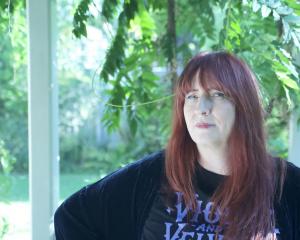
Inspired by Tommy, UK master historian Richard Holmes' book on the ordinary British soldier, Johnny Enzed aims to present the war through the eyes of New Zealand's soldiers. It's as much social history as military history.
The title may sound strange to modern ears used to ''Kiwi''', but ''Enzed'' was the most common nickname applied to our ancestors by foreigners of the day (others were ''Maorilander'' and ''Fernleaf''). Kiwi belongs to more recent times.
Massey military historian Professor Glyn Harper will be familiar to many readers for his Dark Journey collection on famous battles of the Western Front, but I suspect this is likely to be his signature title.
The book follows a generally chronological and/or campaign trajectory, although there are a couple of more thematic chapters. A solid introduction sketches out the world of 1914, New Zealand's military forces, and our first piece of action, the bloodless invasion of German Samoa.
Then we follow men such as Dunedin bookseller (not yet publisher as stated) A.H. Reed and many others into the training camps and then off to war aboard the troop transports.
A series of campaign and country chapters look at Egypt (which men expecting to land in England found frustrating, to put it politely) and Gallipoli.
They are followed by a cluster dealing with the Western Front battles that we will be commemorating from 2016 onwards. Another chapter returns us to the less well known Middle East campaign.
Three final chapters examine New Zealanders in the UK, unusual units such as the Cycle Brigade and the New Zealand Tunnelling Corps, as well as discipline issues.
The conclusion includes a brief exploration of war writing and of how the men coped with their physical and mental wounds. For many the first sight of the Southern Cross as their ships made their way south was the indication that the war really was over.
The key question is how good is Johnny Enzed? Very.
Under a less energetic or authoritative author, the book might have descended into what a colleague dismisses as ''quote and connect history'', but while Harper presents the gems of his research through mainly short extracts, he contextualises these diary and letter remarks and surrounds them with analysis.
Thus chapters open with a general overview and analysis. These give a good overall view and discuss controversies (the biggest one currently concerning the number of New Zealanders who actually served on the Gallipoli peninsula).
There's good coverage of pay, food, clothing, fighting conditions, leave and WW1 language. The big names such as William Malone, Spencer Westmacott, Herbert Hart and Cecil Malthus are all here, but they are balanced by lesser known diarists and letter writers, many new to me.
Johnny Enzed, hard backed in a medium format, runs to 720 pages, including 100 pages of back matter (the index is comprehensive).
The high quality paper does justice to the numerous maps and photographs, some of the latter printed for the first time. It's not a quick read (or physically a light one), but if you want to read just one book on our army's World War 1 experiences, this one's got your number on it.
Gavin McLean is a Wellington historian.












